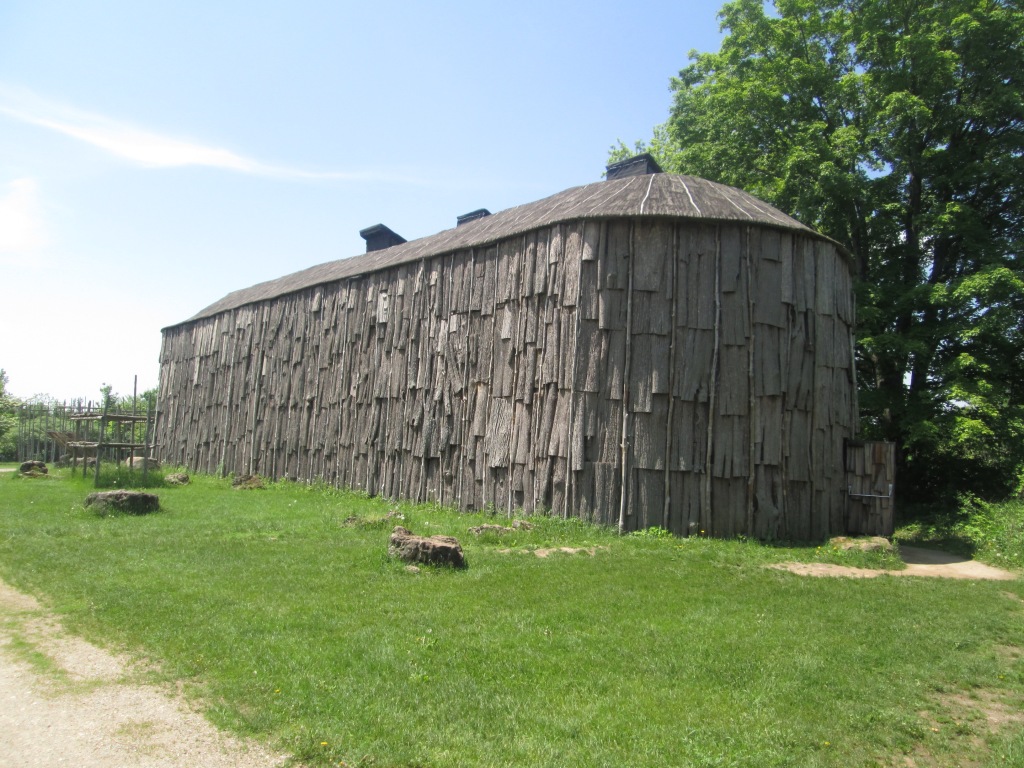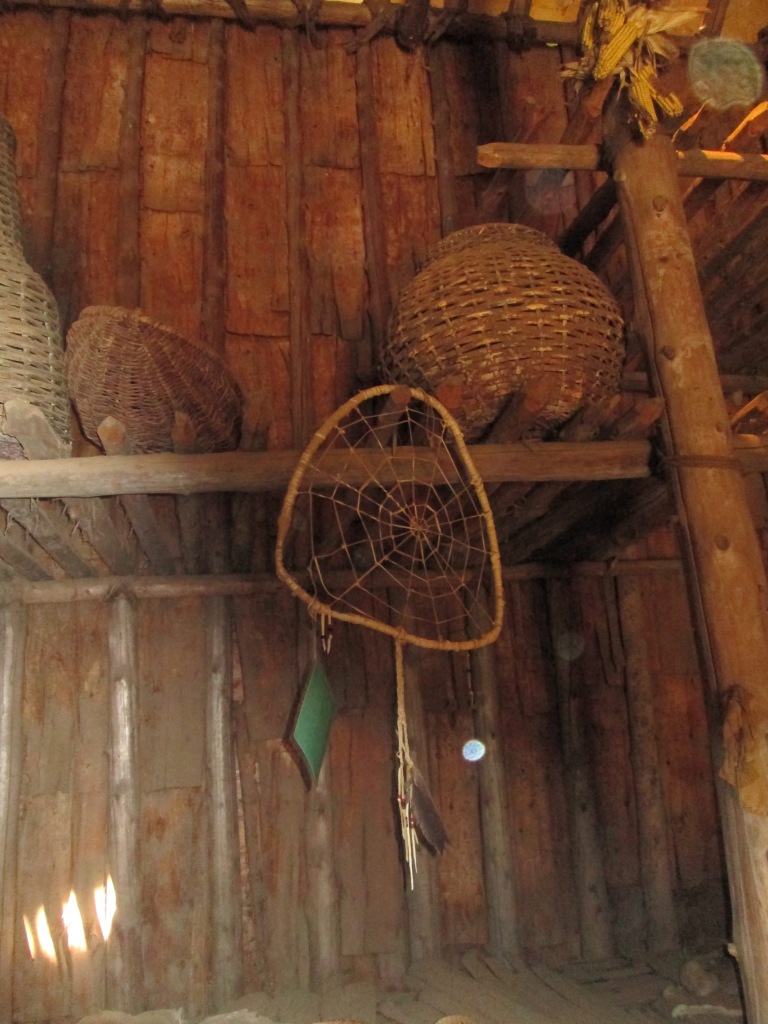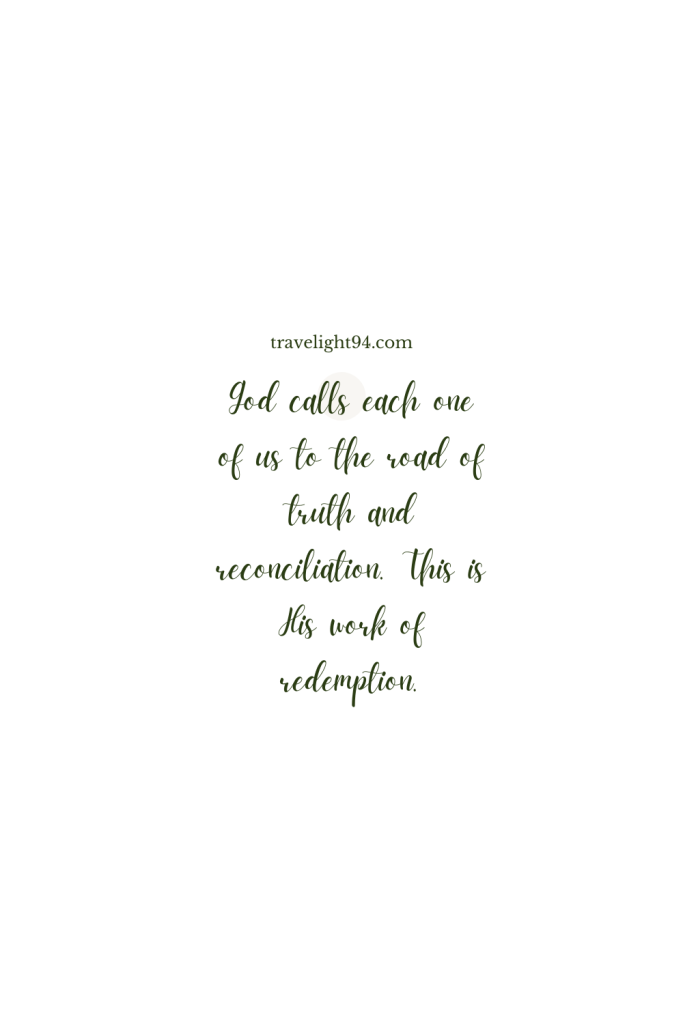travelight94
Words of Light: Grace & Truth for Your Journey Home
215 Is too Many: Confessions and Questions of a White Canadian Mennonite
215.
All you need to type in your search bar is “215” and the search engine will supply the rest. “215 children.” “Remains of 215 Children Found at Residential School.” We all agree: two hundred fifteen children are too many.
For years, I hear of Indigenous peoples calling for justice, which usually comes with a price tag. For years, I hear of people living on reserves, not working, living off of welfare, and drinking it all away. For years, I struggle to love these people who live off our taxes and seem to give us so little.
The Anabaptist culture that I am a part of has missions serving Indigenous peoples in Northern Ontario and South Dakota. I gaze in awe at the saintly people who go to these places. I sense a wrongness in my spirit. I pray that I’d learn to love the native peoples—clearly the least of these.
My elementary education gave me pieces. White people tricked the native peoples out of their lands. The native way of life did not have ownership: they didn’t understand our ways, and we didn’t understand theirs. I learn of the Beothuk, a gentle people chased off the end of a peninsula into the sea. I learn about residential schools. I learn about witch doctors and the spirit world of the native peoples. It sounds like demons. I hear a few of their legends about large turtles and Creator God. I wonder how they managed to get that right.
Then I become a teacher and begin to teach history. I visit an Iroquois village, rebuilt on the location archaeologists have found. I notice the ingenuity of the long houses, the unique system of clan names, and the fascinating games invented to grow their children into healthy, strong adults. I teach about the Ojibwe, the Inuit, and the Algonquin and realize that they are as different as English, Italian, and French.
I notice pieces of their religion that are most certainly wrong, but I also see pieces of their culture that are inspiring and beautiful. I see a culture steeped in story and tradition and intergenerational relationships. I see deep stillness that I see only rarely in people of my own frenetic, cold-country culture.


In college, our teacher spends a couple days contrasting Eastern and Western mindsets. Both cultures have their epic tale the “Ramayana” and the “Odyssey.” Eastern culture is a “we” culture, where family and ancestry trump the individual. Western culture is a “me” culture, where the individual’s search for fulfillment trumps familial and societal norms.
It’s in this class that I learn the heavy hand of Western imperialism was and is a tragic evil. While some of us white people (English, Spanish, and French) came to lands with the good intentions of bringing the Gospel, we left behind more broken cultures, broken lands, and broken souls than we ever saved. Just look at Haiti, Mexico, Cambodia, and Iraq, to name a few.
Is there evil in the native culture? Yes. Is there evil in white culture? Yes. Is the native culture eviller than the white culture, like I believed as a child? No.
Evil, like goodness, cannot be measured. There is simply evil, and then there is good.
Everything created by God is good. Everything on earth has been twisted by sin.
Adam is both my ancestor and the ancestor of each of the 215.
I am driving to work, stopped at the lone light on my long straight road when the radio plays the recording of a residential school survivor reciting his poem “Monster.” I almost turn it off. Writers who use a lot of strong language are not usually using their language well, and the refrain is “Residential school, I hate you.” I listen anyway, because I know deep down this strong language is not too strong. Before he’s finished, tears burn my eyes.
Since college, I’ve taught my grade seven students about residential schools. I borrow two books by Melanie Florence from the local library, and I gather them around me on the floor. I know these stories are hard. There are pieces I don’t give to their ears. I pull facts and pictures from Righting Canada’s Wrongs: Residential Schools. I try to explain how this trauma has broken Indigenous culture. I ask questions and answer their questions. Then, I read the beautiful picture book Stolen Words (a book I recommend for parents wishing to introduce their children to the atrocities of residential schools in a gentle, beautiful way).
After I’m finished, I ask them to open their journals, draw a picture, and answer two questions. “What did you learn today? How did it make you feel?” Invariably, they are shocked and saddened. The gutsy ones want to go back in time, rip open the doors of those schools, and give the teachers a whipping themselves. They draw black robes hanging off white hands and black braids lying on the floor where they fell when they were snipped off.
I remind them that while in some cases these teachers were cruel and ungodly, in other cases, they may have simply been overworked, underpaid, and trapped in a broken system. I remind them that sometimes I lose my temper, and it’s usually when I’m feeling stressed. I can’t imagine being responsible for all those children twenty-four-seven.
I still get frustrated when I hear of millions of tax-payer dollars going into native populations, but I’ve begun to notice a pattern. People are always asking the government for money. It may be the teacher’s unions, long-term care homes, or mental health associations. Below the surface, all they really want is for someone to acknowledge that they are valuable.
In our Western culture, we’ve assigned the value of things and services by a dollar amount. It’s easy to find our own value in dollars, too.
In my research for this essay, I stumbled across a CBC Short Doc, by Sarain Fox. In it, Sarain interviews her auntie and oldest matriarch, a residential school survivor. As such, “She carries a lot of truth and a lot of pain.” (Sarain, 1:45) It’s worth watching. You’ll find it’s less about residential schools and more about a way of life. There’s a bit of swearing, and I found some phrases relating to the spirit world that I disagreed with; but there are so many true words.
Sarain explains, “We are people of our land and people of our stories. We didn’t record them. Instead, we made the effort to listen.” (2:00) “In our way, we sit with our elders while they live. We take the time to hear their stories and honour who they are.” (26:45)
Her auntie sparkles with imp and vitality and wisdom. Despite the horrors she faced, she’s a beautiful soul. I see hints of my own grandmothers.
Western culture chases the elusive fountain of youth. Native culture listens to the fleeting voices of the aged. If Western culture shows value by where it puts its money, Native culture shows value by where it puts its time.
Where do we go from here? A year ago, I wrote here about racism. I didn’t have a lot of answers then. I still don’t.
I think somewhere inside of me, a respect for Indigenous peoples and their way of life has sprouted. I hope my words plant small seeds inside you.
Governments will continue to throw taxpayer money at this problem. Some will be well-spent, helping people like Sarain’s auntie process their pain in healthy ways, so they can live successful lives. Some dollars will find a black hole of depression and addiction and will disappear. As Christians, this actually isn’t our concern. We belong to a different Kingdom.
Towards the end of the documentary, Sarain’s auntie shares how their Indigenous way of life calls her to forgive those that have hurt her, so she can have peace and move on.
Collectively, we need to forgive ourselves for a great wrong done and move on.
Because I rarely interact with Indigenous peoples, moving on for me means asking myself, “What prejudices do I hold? Where have I allowed differences to divide?” The answers are startling.
- I am less likely to reach out to a co-worker from a different type of Mennonite church than I.
- At the park, I’m more interested in watching one little Canadian boy than I am in observing four children of Old Colony Mennonite background.
- I assume that because I’m a sensitive person, everyone else should be, and that if they’re not sensitive than they are not loving.
Most people don’t intend to be prejudiced, to wrong other human beings, to become monsters. So, I ask you, “What prejudices do you hold? Where have you allowed differences to divide you from other people?”

I am an Amazon affiliate. This post contains affiliate links which means that I get a few pennies thanking me for sending you their way. There’s no additional cost to you.
Pingback: There is none righteous; no, not one – Wholly Living
This is the first time I’ve visited your blog and I enjoyed this post, especially the paragraph reflecting on the many groups who ask for money and this observation: Below the surface, all they really want is for someone to acknowledge that they are valuable. It’s an angle I haven’t thought about before. Thanks for sharing such an interesting and honest post.
LikeLiked by 1 person
Thank you for stopping by, Holly.
LikeLike
Pingback: Belated, but still appreciated – Wholly Living
Thanks, Yolanda. I mirror what you have to say here. The week that this story broke I was coincidentally in the middle of reading Seven Fallen Feathers by Tanya Talaga. Which is a good read about the struggle of Indigenous peoples in Thunder Bay. This topic has been weighing on my heart as well. What does love look like with this issue? I will continue to wrestle with this question.
LikeLiked by 1 person
I’m so glad that we don’t have to have it all figured out.
LikeLike
What a thoughtful article, with honest attempt to understand all angles. Well-written as always. I forwarded to my son, Tim, and sister, Judy. They were both impressed too.God bless your valuable communications in our Anabaptist community. Warmly, Elaine Sent from my Galaxy
LikeLiked by 1 person
Thank you for sharing it, Elaine.
LikeLike
Thanks for this. I appreciate it. But I do your protest your line that the problems of indigenous peoples and government money is not our problem because we are part of a different kingdom. I think the gospels reveal that Jesus is absolutely interested in politics and his kingdom is directly political. But the means is suffering love and nothing else. I’d be happy to chat more if you wished. 🙂
LikeLiked by 1 person
I would be interested in hearing more. Are you saying that “suffering love” calls us to be okay with our tax money being used to support Indigenous peoples? I don’t believe we are called to lobby, picket, or vote. Do say more.
LikeLike
I simply mean that being part of another kingdom does not (should not) mean that we care about a different set of human issues. We care about people
and taxes and property and justice and real human welfare just like anyone else. The difference is that we refuse the way of Barabbas and choose the way of Jesus. My concern is that, in trying to distinguish the Anabaptist perspective on political issues from the rest of the society, we resort to drawing a dichotomy between physical and spiritual rather than between love and force. We end up acting as if we care mainly (or even only) about the “never-dying souls” but the problems of poverty and taxes and education are for gov’ment to screw around with. If we do care about people’s physical wellbeing in the world, we often do so only as a means to the “real stuff” which is “spiritual”, aka mental. It looks to me like Jesus was fundamentally agreed with Barabbas that the rule of Rome had to go. But unfortunately, Barabbas was worshipping the same gods that the Romans worshipped when he resorted to force. Jesus knew that the only way to defeat the Romans AND the gods who ruled the Romans was to follow
the pattern of neither. Suffering love dismantled their system and Jesus conquered. Jesus truly cares about the physical suffering, historic oppression, and wide-ranging poverty of the indigenous peoples and everyone else who experiences similar things. But his solution is not to give them a spiritual escape that relativized their physical suffering. That is Bhuddism. Rather, Jesus empowers all people to quit the idolatry of bringing heaven to earth by force and violence. But heaven is still going to come to earth. It has broken in already, and it will, sister.
I think my concern is not nearly so much about what you actually think or said, and a whole lot more about the unfortunate tendency of “two-kingdoms” language to dichotomize physical and spiritual rather than force vs. love. What do you think?
LikeLiked by 1 person
I agree that our Anabaptist culture can very easily draw a line between the sacred and the secular. I suspect in the long run that we see more conversions to Christianity because of long-term, generous relationships than from physical aid in poverty-stricken locales. I think my point there was that as followers of Jesus, we are not called to civil governments. Yes, we need to care about the physical and emotional trauma that people experience, but any aid we give should come out of our own pockets and time. Expecting the government to fix it and grumbling when they don’t is a copout and a waste of precious time. I tend to believe that if we Christians were doing all they could, there would be less for the governments to do. I’ve got much growing to do in this area.
LikeLike
Totally agree!
LikeLike